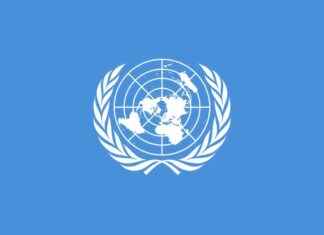Insults, shouts, disqualifications… The Congress of Deputies has become in recent years a real boxing ring. “Witch”, “Nazi”, “coup leader”, “dictator” are increasingly frequent qualifiers both in the hemicycle and in the social networks carried out by political leaders. The irruption of formations such as Vox, which have come to exceed the established limits, is generating a political climate that the Prosecutor’s Office finds worrying due to the incitement to hatred it provokes.
In recent years, multiple warnings have been heard from the presidency of the Congress of Deputies to stop insults and disqualifications with little success. Yesterday, there was a face to face between the President of the Government, Pedro Sánchez, and the leader of the PP, Alberto Núñez Feijóo, which ended with a raised tone and disqualifications.
This ‘new’ policy worries the Prosecutor’s Office because it sees a reflection in hate crimes, as stated in its 2021 Report. “The polarization of political debate and the radicalization of ideological positions are reflected in hate crimes ”, he warns. And in this context, the Prosecutor’s Office also asks to punish hate for territorial origin and use of official language.
The public ministry launches a voice of alarm for the “harmful nature” of hate speech promoted by the political class. “The experience accumulated in the specialty allows verifying that the word precedes the action, that the creation of a climate of hostility, hatred or rejection towards the groups favors that, later, violent actions are carried out against individual people”, he adds. .
According to the Prosecutor’s Office specializing in hate crimes, the polarization of political positions and ideological radicalization is becoming more and more worrying. “The political debate has been extreme and simplified creating a climate that favors intolerance,” he indicates.
That is why he calls on political leaders to reverse this situation because of the serious consequences that this entails in criminal conduct. “Political pluralism is a hallmark of our democratic model and respect for the different political options at stake must guide the behavior of citizens and moderate the actions and public demonstrations of political leaders,” he warns.
The data contained in the Report is that hate crimes for ideological reasons already account for 10% of the indictments for this type of behavior. “The exposed data should lead us all to reflect and must be taken into account to guide the policies and actions of public officials,” he recalls.
The prosecutor emphasizes the situation experienced in Catalonia as a result of the procés, and where it has become visible that this political tension has been transferred to criminal behavior. “Fortunately, there is a relaxation of the political climate and a progressive normalization of coexistence, although crimes of this nature continue to occur in which there is an underlying undesirable belligerence and intolerance towards those who hold positions contrary to their own in relation to this issue,” he stresses. .
According to data from the provincial prosecutors of Catalonia, this type of behavior has been directed “against people or groups that identify with the constitutionalist territorial position.”
The Public Ministry asks —due to the experience accumulated by the delegated prosecutors— to introduce in the generic aggravating circumstance and in the criminal types of hate crimes a discriminatory reason related to “territorial origin and use of the different official languages ??within Spain”.
The Public Ministry recognizes that an exact quantification of the number of criminal proceedings that are substantiated for hate crimes in the courts of instruction throughout Spain is “almost impossible”, since no computer registration application currently has the capacity to offer “reliable information about”. However, the crossing of judicial records with complaints – says the Prosecutor’s Office – allows us to offer approximate figures to the real image. The number of criminal judicial proceedings initiated for hate crimes and against discrimination in 2021 is around 1,824, while in 2020 it was 1,434. This represents an increase of 27.19%.
The most frequent discriminatory motivation in proceedings and accusations continues to be related to racism and xenophobia (racism, ethnicity, national origin and nation). However, discriminatory motivations related to sexual and gender orientation and identity register an increase that had already been seen in previous years. As for the predominant profile of both the perpetrator and the victim, it is that of a man, aged between 18 and 40 and of Spanish nationality.
The Public Ministry especially draws attention to the 20% increase in the use of social networks to commit this type of crime. “Social networks have been permanently incorporated into the daily life of citizens and their use has become widespread in personal and social interaction. Their enormous potential for dissemination, together with a certain sense of anonymity on the part of those who use them, makes social networks a powerful means of disseminating hate speech and harming the dignity of the groups protected by the criminal types that concern us” , affirms the Prosecutor’s Office.
Regarding the discriminatory motives present in the behaviors investigated in the criminal investigation proceedings carried out by the Prosecutor’s Office -in order of greatest incidence, racism and xenophobia represented 38.5%, sexual orientation and sexual identity or gender 25%, ideology 19.2%, Islamophobia 7.8%, gender 3.5%, antisemitism 2.1%, antigypsyism 1.4%, illness or disability 1.4% and aporophobia or social exclusion 0.7%.
In the annual report, the Prosecutor’s Office claims to have verified “a gradual trickle of incidents” in which extreme right-wing elements are involved, “in parallel with an increase in the presence in forums and social networks of messages whose content and paraphernalia are identified with the Nazi orbit. These groups and individuals are mainly attributed with hate crimes directed against very specific groups, such as migrants, focusing on those known as menas (unaccompanied foreign minors) and the LGTBIQ movement, “whose members are accused of be benefactors of aid and public resources to the detriment of nationals”.








